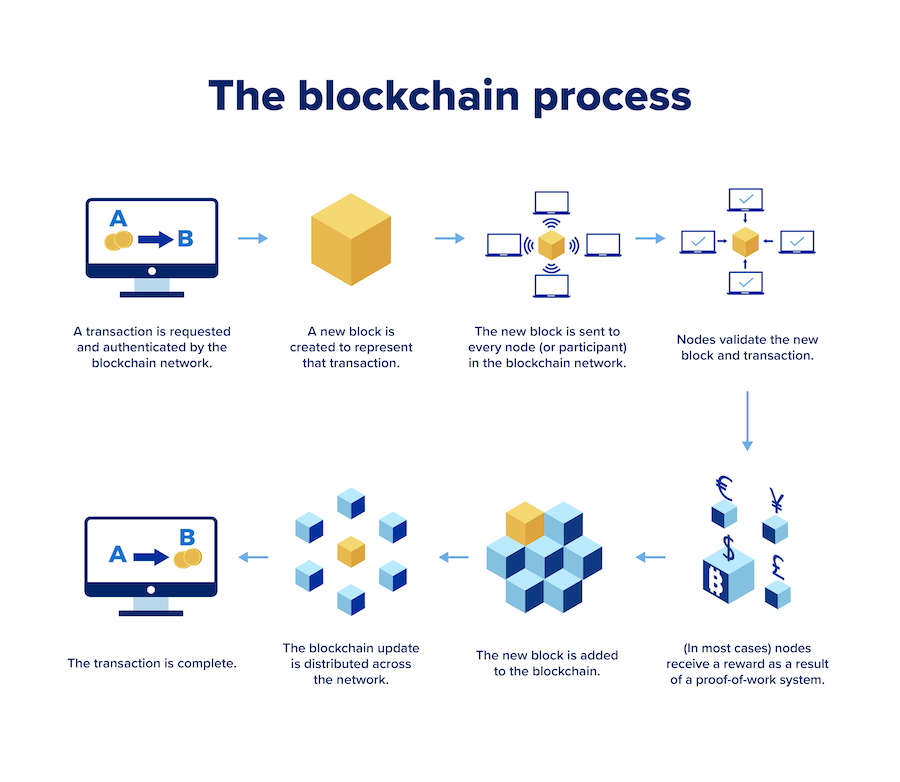Driven to Divide: Insights & Perspectives
Exploring the forces and ideas that shape our divided world.
How Blockchain is Remaking Trust One Byte at a Time
Discover how blockchain is reshaping trust in the digital age—transforming transactions one byte at a time! Explore the revolution now!
Understanding Blockchain: The Key to Decentralized Trust
Understanding Blockchain is essential for anyone looking to grasp the concept of decentralized systems and digital trust. At its core, blockchain is a distributed ledger technology that enables multiple parties to maintain a shared database without a central authority. This breakthrough allows for decentralized trust, as each transaction is verified by a network of computers, ensuring transparency and security. Unlike traditional systems that rely on a single entity to manage and authenticate data, blockchain empowers users by eliminating the need for intermediaries. Consequently, this fosters a new era of innovation across various industries, ranging from finance to supply chain management.
The potential of blockchain technology hinges on its ability to facilitate secure and transparent transactions through its unique structure. Each block in the chain includes a list of transactions, a timestamp, and a cryptographic hash of the previous block, ensuring that once data is added, it cannot be altered without the consensus of the network. This creates an immutable record that reinforces decentralized trust. As more organizations recognize the advantages of blockchain, we are witnessing a paradigm shift where trust is built on technology rather than individuals. To fully leverage this potential, it is crucial for businesses and individuals alike to deepen their understanding of how blockchain operates and its implications for the future.

How Blockchain Technologies Are Revolutionizing Transparency
Blockchain technologies are fundamentally changing the landscape of transparency across various industries. By providing a decentralized and immutable ledger, blockchain ensures that all transactions are recorded with a level of precision and security that traditional systems simply cannot match. This enhanced transparency is particularly beneficial in sectors like finance, where trust is paramount. Since every transaction is timestamped and verified by multiple participants, stakeholders can rest assured that the data has not been altered or manipulated, thus reinforcing trust and accountability.
Moreover, the advent of smart contracts further amplifies this transparency revolution. These self-executing contracts with the terms of the agreement directly written into code eliminate the need for intermediaries, reducing the potential for fraud and errors. As organizations embrace this technology, they can provide their customers with real-time visibility into their transactions, promoting a culture of openness. In doing so, blockchain technologies are not just enhancing transparency; they are also paving the way for more ethical business practices and greater consumer confidence.
Is Blockchain the Future of Trust in Digital Transactions?
In an increasingly digital world, trust becomes a critical factor in transactions. Traditional systems often rely on centralized authorities to validate transactions, which can lead to fraud and errors. Blockchain technology offers a decentralized and secure alternative, allowing users to verify transactions without needing a central point of control. This innovative technology uses cryptographic techniques and consensus mechanisms to ensure that all parties involved in a transaction can trust the outcome, thereby establishing a new paradigm for trust in digital interactions.
Moreover, the transparency inherent in blockchain systems allows for real-time tracking of transactions, making it easier to audit and ensure compliance. As various industries explore the use of smart contracts and decentralized applications, the potential for blockchain to reshape the trust landscape continues to grow. By minimizing reliance on intermediaries and increasing transparency, blockchain could indeed emerge as the cornerstone of future digital transactions, fostering a more secure and efficient ecosystem for all.